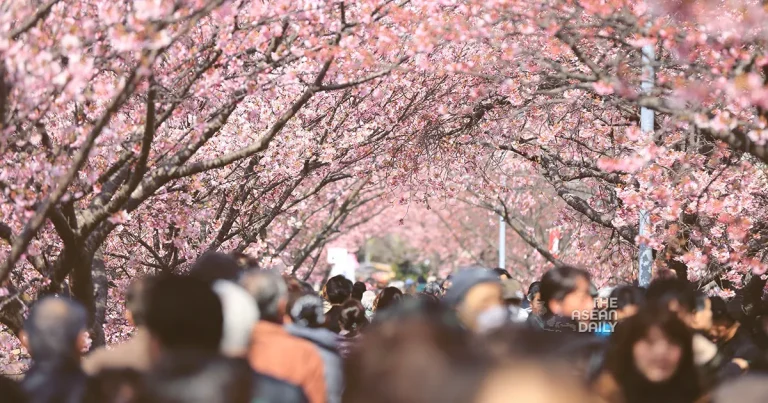29-4-2024 (TOKYO) Japanese travellers, once renowned for their globe-trotting adventures, are now choosing to explore their own backyard as international travel remains subdued. Factors such as a weaker yen, soaring airfares, and sluggish wage growth are keeping overseas travel figures well below pre-pandemic levels.
In March, only 1.22 million Japanese citizens ventured abroad, marking a significant 36.8% decline compared to the same period in 2019, as reported by the Japan National Tourism Organization. Conversely, March saw a record influx of tourists visiting Japan.
As Japan’s Golden Week kicks off, a series of national holidays, domestic travellers are flocking to destinations like Kochi in the south, Atami near Tokyo, as well as Okinawa and Hokkaido.
Responding to this trend, Japan Airlines and ANA are reallocating a substantial portion of their flight capacities to cater to inbound tourists and regions with higher demand. Government projections suggest that a recovery in outbound travel may not materialize until at least next year.
Reflecting on this shift in travel patterns, 39-year-old Ms. Tomoyo Shimoya remarked, “It might be some time before I travel abroad again; it’s overpriced now – food and everything.” Ms. Shimoya opted to celebrate her birthday at the more affordable Hatoya Hotel earlier in April, where an overnight stay with meals costs around 15,000 yen per person, compared to the steep average hotel rates in destinations like Hawaii.
Hatoya Hotel, once a beloved seaside retreat during Japan’s post-war economic boom, is experiencing a revival after being overshadowed by more glamorous resorts both domestically and internationally. Mr. Shigeru Haraguchi, president of Fuji Shoji, which operates Hatoya and its sister property Sun Hatoya, emphasized the importance of maintaining the hotels’ authentic charm while offering affordable yet quality services.
With domestic interest in local destinations on the rise, Japanese travellers’ spending within the country has rebounded to pre-pandemic levels, reaching 21.9 trillion yen in 2023. This surge in demand, coupled with a record number of inbound tourists, has propelled hotel prices to levels not seen in three decades.
While domestic travel flourishes, ANA and Japan Airlines face challenges in maintaining international market share amidst lacklustre outbound travel figures. The reluctance to travel overseas is reflected in the low number of Japanese passport holders, which stands at just 17% of the population.
Efforts to incentivize overseas travel include calls for lower passport fees and airline subsidies, aiming to encourage outbound tourism. Despite the current slowdown, industry experts remain optimistic about the eventual recovery of outbound tourism, particularly among younger travellers.
However, concerns persist about the impact of the weakened yen on overseas travel, with industry leaders urging government intervention to address the issue.




